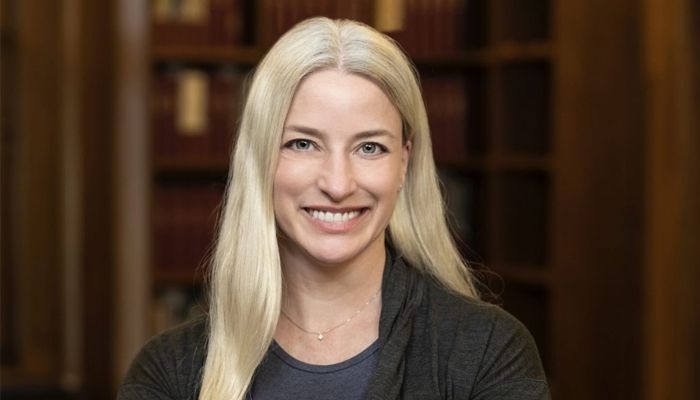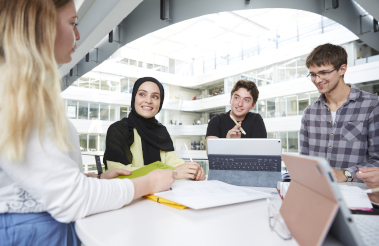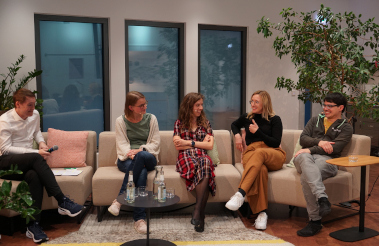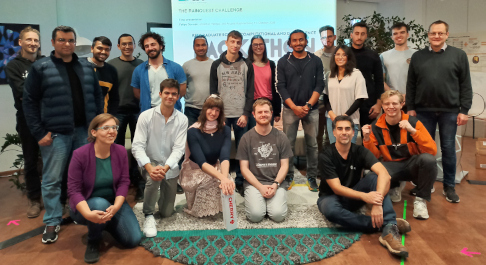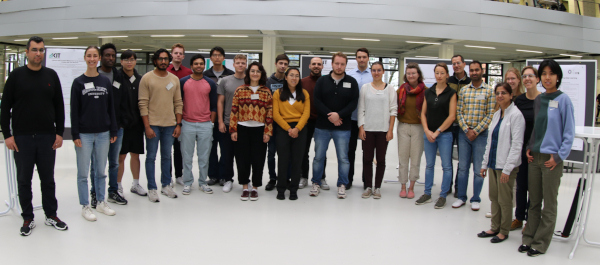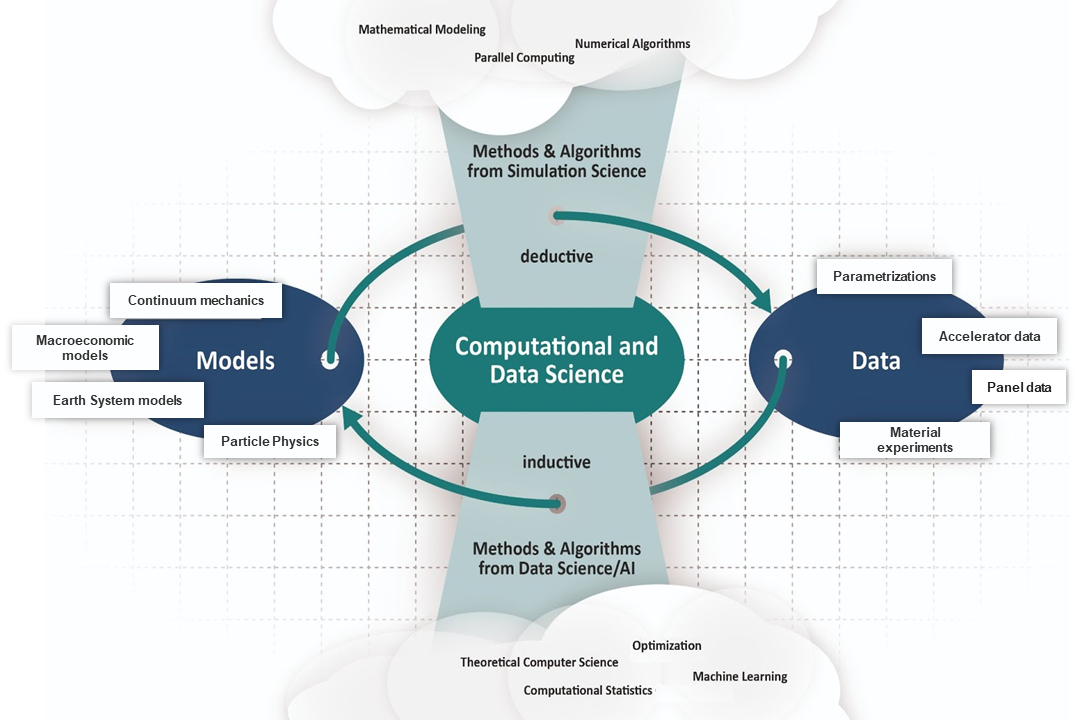Campus South, bldg. 11.40, R231
KIT researchers
The aim of the lecture is to provide a broad overview of the energy system. Hence, the lectures offer basic insights into very different topics, such as specific technologies, economic aspects as well as the role of humans in the energy system.
Though the lecture is primarily tailored to the ENZo doctoral researchers, it is open to everyone. Especially interested master students and doctoral researchers of all faculties are cordially invited to attend. Completed subjects also allow attendance at single sessions.
January 30, 2025: Data anaytics and machine learning for energy systems
online
Dr. Christian Dumpitak , iGRAD – Interdisciplinary Graduate and Research Academy Düsseldorf, HHU Düsseldorf
Online
The event will be held in English and run for two days, on February 17 and 18, 2025, each starting 9:30 a.m. until 2:30 p.m.
Researchers are responsible for ensuring that their own conduct complies with the standards of good research practice. The workshop will introduce basic issues of research integrity by addressing important guidelines of the Deutsche Forschungsgemeinschaft (DFG) and specific regulations of KIT for safeguarding good research practice – relevant for every early career researcher@KIT.
A) Basics of Responsible Conduct
Introduction: Research, ethical principles and professional ethos of a researcher
Basic (inter-)national recommendations and regulations for safeguarding good research practice
Research misconduct: Examples, elements of offense, reasons and consequences
B) General Responsibilities
Quality management: research design, documentation/archiving
Publication process, authorship and review of manuscripts
Supervision: Expectations/duties/roles
Organizational culture: Collaboration, communication, prevention and dealing with conflict
Procedures in case of suspicion and relevant contact points
C) Important Specific Responsibilities
Important prior to any data collection: Authorization or permission relevant research
Possible topics (depending on participants’ disciplinary/research background): ‘Research on animals’, ‘Research on humans’ and/or ‘Surveys, interviews, data privacy and security issues in research’
Throughout the various sections of the workshop the use of text- and image-generating AI will be discussed as an integral part.
Via dialogic inputs, discussion of case examples, single/group work and plenary discussion participants will have the opportunity to discuss and reflect their individual research practice and professional attitudes on being a researcher.
This event is open to members of KCDS.
The event will be held in English and run for two days, on February 17 and 18, 2025.
Technical requirements: To participate in this event, you need a stable internet connection, a webcam and a microphone. Participants will receive further detailed information regarding the online-platform prior to the event.
If you are unable to attend an event, please inform us promptly via e-mail. This way you are allowing your colleagues the opportunity to participate and you help us to maintain the quality of our qualification program. Thank you!
This workshop is being organized in cooperation with CRC Wave Phenomena.
This workshop offer is directed at KCDS members. To register for this workshop, please inquire via e-mail: kcds@kit.edu
Photo by Camila Cordeiro on Unsplash
online
Dr. Christian Dumpitak , iGRAD – Interdisciplinary Graduate and Research Academy Düsseldorf, HHU Düsseldorf
Online
The event will be held in English and run for two days, on February 17 and 18, 2025, each starting 9:30 a.m. until 2:30 p.m.
Researchers are responsible for ensuring that their own conduct complies with the standards of good research practice. The workshop will introduce basic issues of research integrity by addressing important guidelines of the Deutsche Forschungsgemeinschaft (DFG) and specific regulations of KIT for safeguarding good research practice – relevant for every early career researcher@KIT.
A) Basics of Responsible Conduct
Introduction: Research, ethical principles and professional ethos of a researcher
Basic (inter-)national recommendations and regulations for safeguarding good research practice
Research misconduct: Examples, elements of offense, reasons and consequences
B) General Responsibilities
Quality management: research design, documentation/archiving
Publication process, authorship and review of manuscripts
Supervision: Expectations/duties/roles
Organizational culture: Collaboration, communication, prevention and dealing with conflict
Procedures in case of suspicion and relevant contact points
C) Important Specific Responsibilities
Important prior to any data collection: Authorization or permission relevant research
Possible topics (depending on participants’ disciplinary/research background): ‘Research on animals’, ‘Research on humans’ and/or ‘Surveys, interviews, data privacy and security issues in research’
Throughout the various sections of the workshop the use of text- and image-generating AI will be discussed as an integral part.
Via dialogic inputs, discussion of case examples, single/group work and plenary discussion participants will have the opportunity to discuss and reflect their individual research practice and professional attitudes on being a researcher.
This event is open to members of KCDS.
The event will be held in English and run for two days, on February 17 and 18, 2025.
Technical requirements: To participate in this event, you need a stable internet connection, a webcam and a microphone. Participants will receive further detailed information regarding the online-platform prior to the event.
If you are unable to attend an event, please inform us promptly via e-mail. This way you are allowing your colleagues the opportunity to participate and you help us to maintain the quality of our qualification program. Thank you!
This workshop is being organized in cooperation with CRC Wave Phenomena.
This workshop offer is directed at KCDS members. To register for this workshop, please inquire via e-mail: kcds@kit.edu
Photo by Camila Cordeiro on Unsplash
Hybrid: TRIANGEL Studio @Kronenplatz and Zoom
Louise Kluge, Lisa Leimenstoll, Gabriel Mejia Ruiz, Lilly Osburg, KIT
The KIT Graduate School Computational and Data Science (KCDS) at KIT Center MathSEE is excited to present a special edition of the KCDS Talks in February, where KCDS Fellows will showcase their cutting-edge research. This event offers a glimpse into the innovative work being done by the next generation of computational and data scientists.
Join us in person or on Zoom to hear from four talented fellows as they present their fascinating research topics:
Gabriel Mejia Ruiz (KIT SCC)
"Trainability of Data-Driven Quantum Models"
Gabriel will explore the challenges and possibilities of training quantum models using data-driven approaches and discuss their implications for of quantum computing.
Louise Kluge (KIT SCC)
"Efficient Bayesian Inference in Cosmological Simulations: A Challenge in Uncertainty Quantification"
Louise will delve into how Bayesian inference can be applied to large-scale cosmological simulations, particularly focusing on methods to address uncertainty quantification.
Lisa Leimenstoll (KIT STAT)
"Causality in Extremes: Exploring the General Case of Different Tails"
Lisa will present her research on extreme value theory, particularly focusing on estimating causal relationships in extreme events.
Lilly Osburg (KIT SCC)
"Exploitation of Humanities Data for Big Data Analysis"
Lilly will explore how data from the humanities can be exploited for large-scale analysis using big data techniques, shedding light on interdisciplinary research opportunities.
Following the talk, there will be a discussion with the speakers, offering attendees the opportunity to ask questions and engage in conversation about the topic. The session will be hosted by Lilly Osburg and Lukas Frank.
Snacks and Drinks & Networking Opportunity: After the event, there will be food provided, offering an excellent opportunity to network with the speakers and other attendees. Make the most of this chance to connect and discuss ideas with fellow researchers and professionals.
Whether you're a student, researcher, or simply curious about the latest trends in computational science, this event will provide valuable insights into diverse and impactful research areas.
Join us in person or via Zoom – the event is free and open to all without prior registration.
Room 10/1, Building 30.23 - Physics Tower, CS
Hanna Woye
“PhD in physics? You don’t seem like a nerd at all.”
“You’re a woman in biology? Guess that helped with getting research funding, huh?
“Mathematics degree? For teaching, right?”
“Environmental science? I guess you’re one of those climate activists then.”
We’re all familiar with it: being pigeonholed. Sometimes it’s through casual, subtle remarks, other times it’s direct and hurtful, and sometimes it remains unspoken.
We also pigeonhole others ourselves when we interact with them. Since these labels influence our perception and actions, they aren’t just unconscious biases but have real consequences.
Understanding the mechanisms behind these biases and their potential effects helps us, on one hand, to scrutinize our own biases and avoid acting upon them, and on the other hand, to devise strategies for dealing with situations in which we are unfairly pigeonholed.
In this interactive workshop, participants delve deeper into the topic of unconscious bias. The focus lies on hands-on methods that bridge cognitive knowledge about unconscious assumptions with emotional aspects. Furthermore, participants work on strategies to deal with unconscious assumptions with which they themselves are labeled.
Thematic Focal Points
Perception:
Exploring how we view the world and how stereotypes form.
Personal Perspective:
Understanding my background and its impact on my perception of women.
Stereotypes and Prejudices:
Examining the functions of prejudices and strategies for managing them.
Discrimination and Power Imbalances:
Exploring the connection between unconscious biases and structural inequality.
Managing Biases:
Developing personal strategies for adressing gender stereotypes and other biases. ODER Developing personal strategies for dealing with biases.
